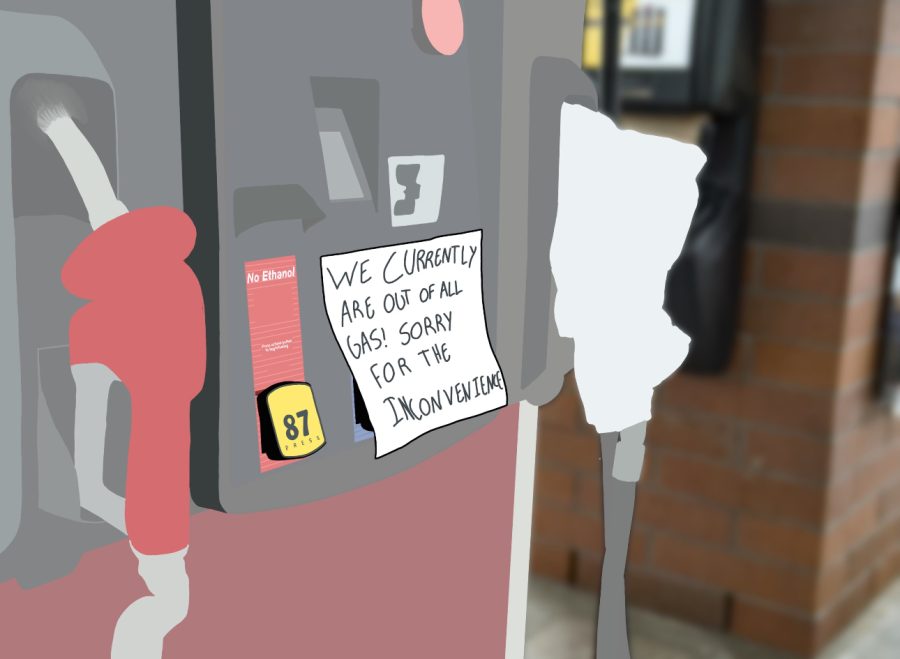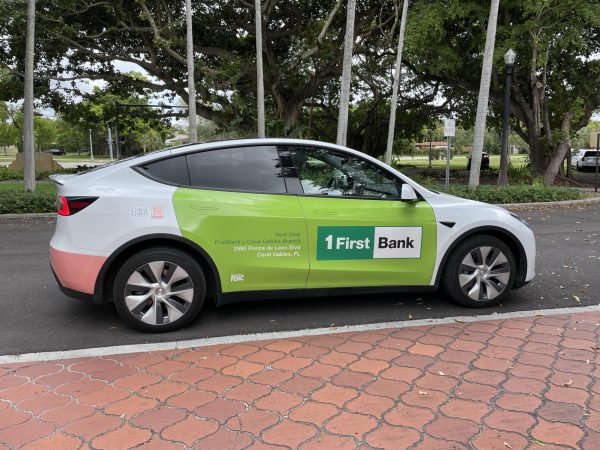Florida’s Gas Shortage: A Symptom of a Larger Problem
Florida is no stranger to severe weather, but the flooding that hit the state in recent weeks has caused unexpected consequences. Oil delivery has faced severe adversity, resulting in limited availability of gasoline in most areas. The crisis has led to long lines at gas stations, increased prices and panic buying, leaving many Floridians struggling to get the fuel they need. This situation is not only outrageous, but it also has significant consequences for the state’s economy and the community as a whole, all of which could have been prevented.
The root cause of the problem is not just the flooding itself, but rather a combination of factors that have contributed to the crisis. Firstly, there is the issue of inadequate infrastructure and preparedness in the face of extreme weather conditions. Florida is familiar with flooding, and the state’s officials should have had contingency plans in place to prevent or mitigate the damage caused by flooding. While programs such as the Flood Mitigation Assistance Program do exist to respond to these situations, they would prove to be more effective with greater financial backing. By providing additional economic assistance to such programs, responders would be better equipped to provide assistance to Floridians in need during such a large-scale crisis.
Along with the improvement of these programs, antiquated road systems in areas prone to flooding in Florida, such as those in older areas of Miami and Broward, should be updated in order to prepare them for future natural disasters. Instead, it seems that little has been done to improve the state’s infrastructure. This level of neglect and apathy towards addressing the infrastructure crisis is nothing short of an abomination, demonstrating a profound failure of leadership and an utter lack of responsibility. The current situation is an indictment of the state’s priorities, as it continues to prioritize short-term gains over the long-term resilience and security of its people.
In addition to the insufficient planning, the issue of corporate responsibility is one of the main causes of the recent gas shortages. The organizations responsible for delivering gasoline to Florida, namely the United States Gulf Coast, have failed to respond to the crisis properly. Instead of prioritizing the needs of the people, they have been focused on maintaining profits. For instance, average gas prices have skyrocketed to a 2023 high of $3.72, and gas stations in certain areas of South Florida have increased their prices to over four dollars. As a result, there have been reports of price gouging, hoarding and other unethical practices that have worsened the situation for ordinary people. These issues have become a real concern in the community, and they must be addressed by those in power.
Consequently, the effects of the gas shortage have been far-reaching. For one, it has caused significant disruptions to daily life, as people are forced to spend hours in line waiting for gas or even go without it entirely. This is particularly difficult for essential workers, such as healthcare professionals and first responders, who rely on fuel to get to work.
“My neighborhood flooded pretty badly during the recent storm. It was a nightmare trying to get around, and when I finally made it to the gas station, there were long lines, and some pumps were already out of fuel. It’s frustrating, because I need a car to get to school and work, but I’m just hoping things get back to normal soon,” senior Rafael Aguilera said.
The recent circumstances have also highlighted some of the larger issues facing Florida and the country as a whole. The lack of investment in infrastructure, the prioritization of corporate profits over people’s needs and the failure of government officials to respond effectively to crises are all symptoms of a broader problem. Unless we address these underlying issues, we will continue to see similar crises in the future.
“This recent flooding has made life very difficult for me and for other students just trying to get to school and to work. Lack of response to these problems isn’t shocking, but it is surely something that needs to be worked on immensely. DeSantis and the rest of the organizations responsible need to lock in and make sure that this doesn’t happen again,” senior Alyssa Acosta said.
To address the current situation in the short term, multiple actions should be taken. For one, increasing the fuel storage capacity at the state-level could help ensure that there is enough fuel available to meet demand even during disruptions. By implementing storage reserves of gasoline and making sure that there are methods for fuel delivery in these cases, Florida would be better prepared in to face these disasters in the future.
In the long term, it is clear that more needs to be done to address the root causes of the gas shortage in Florida. This will require a concerted effort from politicians, businesses and consumers alike. Current leaders need to step up and prioritize infrastructure investment and preparedness for natural disasters, while consumers who act responsibly instead of panic-buying are necessary during times of crisis.
“I never realized how much I took having access to gas for granted until now. It’s been tough trying to coordinate carpooling with friends or figuring out alternative transportation options, but we’re all in this together and just hoping for a solution soon,” sophomore Rolando Valdes said.
The recent gas shortage in Florida serves as a reminder of the significance of preparedness for unforeseen circumstances. Although it is not always possible to anticipate when a weather event may occur, politicians and people in power can and should take steps to ensure that local communities are resilient in the face of adversity. Through collective effort and proactive measures, Floridians can have access to the necessary fuel to sustain their lives and businesses.
Your donation will support the student journalists of Coral Gables Senior High School. Your contribution will help us cover our annual website hosting costs.

Anthony Fajardo, a junior in the International Baccalaureate magnet program at Coral Gables Senior High School, is gearing up for his third year as a writer...

Joseph Abrahantes, a sophomore in the International Baccalaureate program and second year member of CavsConnect, is excited to come back as the publication's...
















Joseph Dicaprio • May 14, 2023 at 7:33 pm
And where was our Governor DeSantis in Israel trying to earn points from the Israeli government and on our dime! All the while Port Everglades was under water and flooded for days. This nonsense has to stop now!!